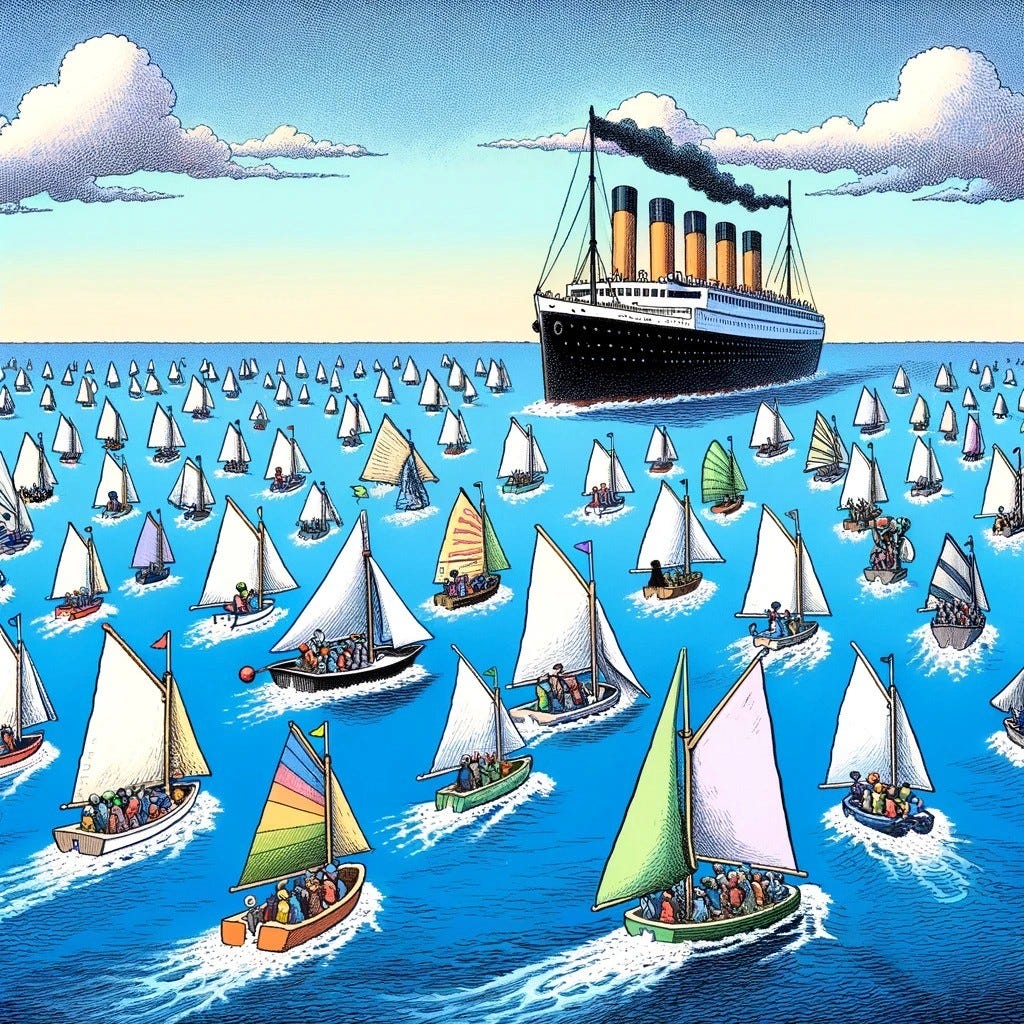Why Alternative Schooling Makes More Sense in the Age of AI
In traditional schooling, the carpenter approach is prevalent, where the child is molded and shaped according to a predetermined plan, much like wood is carved into a specific shape.
In an era where artificial intelligence (AI) is reshaping our world, the traditional path of education, much like a well-trodden and rigid highway, is increasingly becoming a relic of the past. The conventional education system, a rite of passage as old as time, where children struggle to learn in a one-size-fits-all approach, is akin to fitting square pegs into round holes. But in this age of AI, we must ask: is this the best we can offer our children?
Imagine education as a vast ocean, with each student setting sail on their unique voyage. Traditional schooling is like giving every child the same map and compass, expected to navigate identical routes, regardless of the varying winds and currents they individually face. In contrast, alternative schooling provides each child with their own set of navigational tools, tailored to their strengths, interests, and learning pace, embracing the diversity of the seas rather than forcing every voyage along the same course.
In the landscape of AI, where adaptability, creativity, and critical thinking are paramount, the rigid, one-directional approach of traditional education seems as out-of-place as a steam engine in a world of electric cars. AI is rapidly changing job markets, creating new fields, and rendering old ones obsolete. In this ever-evolving scenery, children need skills to adapt, much like a tree that bends and sways with the wind, yet remains rooted and strong.
Consider the metaphor of the gardener versus the carpenter in education, coined by Alison Gopnik. In traditional schooling, the carpenter approach is prevalent, where the child is molded and shaped according to a predetermined plan, much like wood is carved into a specific shape. However, in alternative schooling, the gardener approach is embraced. Here, the educator, like a gardener, provides a rich environment for the children to grow, explore, and discover themselves, much like plants flourishing in a garden. Each child, like a unique plant, is nurtured according to their individual needs and potential, not shaped into a one-size-fits-all model.
Alternative schooling, like the gardener's approach, is about providing a nurturing environment where children can grow in their own unique way. It's about igniting the spark of curiosity and passion, not extinguishing it with the damp cloth of standardization. It's about guiding students through the forest of knowledge, not dragging them along a single path. It's about teaching them to dance with the ever-changing rhythms of life, rather than march to the monotonous beat of outdated practices.
As we stand at the crossroads of education and AI, the choice seems clear. We can either continue down the well-worn path of traditional education, or we can embark on the more scenic route of alternative schooling, a path that respects the individuality of each child and prepares them for the dynamic future that lies ahead. It's time to adjust our sails and navigate towards a horizon where education is not just a journey but an adventure of discovery, adaptation, and personal growth.

